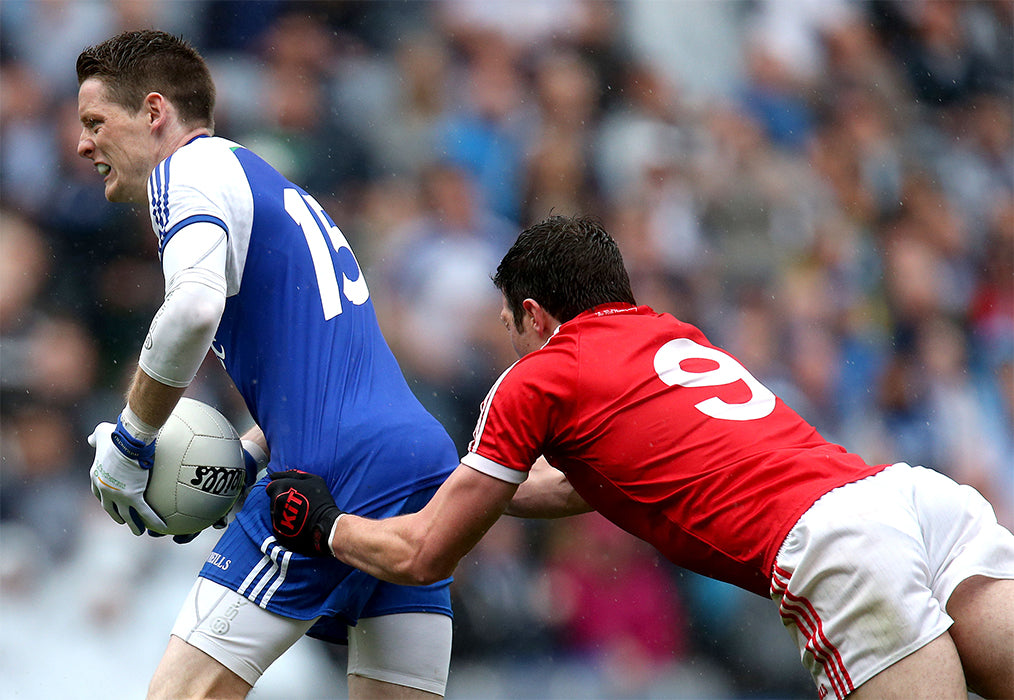
What does a Black Card mean in GAA
The black card has been much maligned and changed since it was first introduced into Gaelic football, but what does a black card mean in GAA right now?
It’s as confusing to some as it ever was, and its interpretation can leave a lot to be desired.
In this blog we’ll clarify exactly what does a black card mean in GAA.
If you’re new to GAA and don’t know what it stands for, check out this Blog on what GAA means here.
When was the Black Card in GAA Introduced?
A black card was brought into football back in 2014 in an attempt to curb cynical fouling, which had crept into football.
Remember Seán Kavanagh/Joe Brolly gate?

Well, that moment is often – unfairly or fairly – scapegoated as the tipping point as to why the rule was introduced.
Initially it was decided that the player receiving the black card would be substituted immediately and not allowed back onto the field.
But that has since been changed to the 10-minute sin bin rule.
What does a black card mean in GAA
To be given a black card in the GAA, a player must leave the field for ten minutes, and no replacement can come on during that period.
Effectively, your team is a man down for ten minutes.
Should a player receive a black card followed by a yellow card later in the match, or vice versa, they will be issued a red card.
The time in the sin bin will start when the referee restarts the game after the foul.
The player can only return to play, after the period of ten minutes has ended, at the next break in play and with the permission of the referee.
If the goalkeeper happens to get a black card he could be replaced by one of the outfield players who should wear a distinctive jersey or a sub made.
A black card will also carry into extra time, as well as the non-expired time of the black card.
Black card offences in the GAA
Cynical Behaviour fouls
- To deliberately pull down an opponent
- To deliberately trip an opponent with the hand, arm leg or foot
- To deliberately collide with an opponent after he has played the ball away or for the purpose of taking him out of the movement of play
- To remonstrate in an aggressive manner to match officials
- To threaten or to use abusive or provocative language or gestures to an opponent or teammate
All these fouls are completely up to the discretion of the referee.
Conclusion
We hope we’ve answered what does a black card mean in GAA for you.
Check out this cool video from the GAA below.
You can check out our GAA ranges HERE.